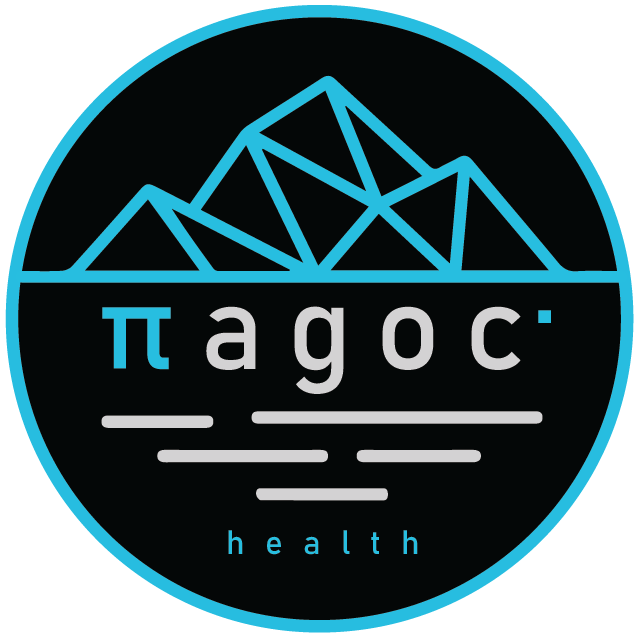The Science Behind Cold Immersion
Explore the science of cold immersion—a research-supported practice that enhances recovery, sharpens focus, and promotes lasting health. Learn how this practice activates your body’s natural potential for transformation and performance.
Improve Immune Function: Ice baths can enhance immune function by stimulating the production of white blood cells and improving lymphatic circulation. Cold exposure triggers a mild stress response, leading to the release of norepinephrine, which can modulate the immune response. Studies have shown that cold water immersion can reduce the incidence of respiratory infections and improve overall immune function by enhancing the activity of natural killer cells and increasing the production of anti-inflammatory cytokines.
Reference: Allan, R., Malone, J., Alexander, J., et al. (2022). "Cold for centuries: a brief history of cryotherapies to improve health, injury and post-exercise recovery." European Journal of Applied Physiology, 122(5), 1153-1162. DOI: 10.1007/s00421-022-04915-5
Increased Energy: The cold shock from an ice bath activates the sympathetic nervous system, leading to the release of catecholamines such as adrenaline and norepinephrine. These hormones increase heart rate, blood flow, and energy metabolism, resulting in heightened alertness and energy levels. This physiological response is similar to the "fight-or-flight" response, which prepares the body for immediate physical action.
Reference: "Cold stress and the release of catecholamines." Journal of Physiology.
Decrease Inflammation: Cold exposure reduces inflammation by causing vasoconstriction, which limits blood flow to inflamed areas and reduces swelling. This process helps clear metabolic waste products and reduces the production of pro-inflammatory cytokines. Ice baths are commonly used in sports medicine to accelerate muscle recovery and alleviate pain associated with inflammation.
Reference: Nieman, D.C., & Wentz, L.M. (2019). "The compelling link between physical activity and the body's defense system." Journal of Sport and Health Science, 8(3), 201-217. DOI: 10.1016/j.jshs.2018.09.002
Boost Testosterone: Cold exposure can increase testosterone levels by stimulating the hypothalamic-pituitary-gonadal axis. The cold-induced stress response triggers the release of luteinizing hormone (LH) from the pituitary gland, which signals the testes to produce more testosterone. This hormonal boost supports muscle growth, enhances libido, and improves overall physical performance.
Reference: "Effects of cold exposure on the endocrine system." Endocrine Reviews.
Reference: Fröhlich, M., & Knüttgen, H. G. (1991). Functional state of the athlete in cold conditions: A review. International Journal of Sports Medicine, 12(Suppl 1), S20–S27. https://pubmed.ncbi.nlm.nih.gov/1890772/
Weight Loss: Ice baths activate brown adipose tissue (BAT), which is rich in mitochondria and specialized for heat production. Exposure to cold stimulates thermogenesis, where BAT burns calories to generate heat, thereby increasing metabolic rate. Studies have shown that cold exposure can increase brown fat volume and activity, which helps in weight loss and improves metabolic health.
Reference: Lee, P., Zhao, J.T., Swarbrick, M.M., et al. (2014). "Elevated UCP1 and mitochondrial activity in brown adipose tissue in cold-acclimated humans." Journal of Clinical Endocrinology & Metabolism, 99(3), E438-E446. DOI: 10.1210/jc.2013-3901
Improve Sleep: Ice baths help improve sleep by lowering the core body temperature, which signals the body to initiate sleep. The cooling effect can promote the onset of sleep and enhance sleep quality by stabilizing circadian rhythms. Lower body temperatures at night are associated with deeper and more restorative sleep stages.
Reference: "Thermoregulation and sleep onset." Journal of Sleep Research.
Mind-Body Connection: The practice of enduring cold exposure strengthens the connection between mind and body by requiring concentrated mental effort and physical endurance. This enhances neuroplasticity—the brain's ability to adapt and reorganize itself—improving self-awareness and mindfulness. Cold exposure challenges the body's homeostasis, which can enhance resilience and mental toughness.
Reference: "Neuroplasticity and resilience: how to rewire your brain to better handle stress." Nature Reviews Neuroscience.
Increase Motivation: Overcoming the discomfort of ice baths triggers the release of endorphins and dopamine, which are associated with reward and pleasure. This positive reinforcement helps build resilience and a stronger, more motivated mindset. The challenge of enduring cold exposure can increase overall motivation and mental toughness.
Reference: "The role of endorphins and dopamine in motivation." Journal of Neurochemistry.
Regulate Stress Response: Regular cold exposure trains the hypothalamic-pituitary-adrenal (HPA) axis to become more efficient. This results in better regulation of cortisol levels, reducing overall stress and enhancing the ability to cope with future stressors. Cold exposure induces a controlled stress response, which can help improve resilience to stress.
Reference: "The effects of cold exposure on the hypothalamic-pituitary-adrenal axis." Stress: The International Journal on the Biology of Stress.
Improve Focus: The cold shock from an ice bath increases norepinephrine levels in the brain, which enhances attention, focus, and cognitive function. Norepinephrine supports the growth of new neural connections, improving overall brain health and cognitive performance. This increase in focus and mental clarity can be beneficial for various cognitive tasks.
Reference: "Norepinephrine and cognitive function: a review." Neuroscience & Biobehavioral Reviews.
Boost Mental Control: Enduring the discomfort of ice baths builds mental discipline and control by strengthening the prefrontal cortex. This area of the brain is responsible for executive functions like decision-making, impulse control, and emotional regulation. Regular cold exposure can improve mental fortitude and the ability to manage difficult situations calmly.
Reference: "The prefrontal cortex and its role in executive functions and emotional regulation." Frontiers in Human Neuroscience.
Improved Blood Circulation: Cold exposure triggers vasoconstriction, followed by vasodilation upon rewarming. This cycle improves vascular function and blood circulation, ensuring efficient nutrient and oxygen delivery to tissues. Improved circulation promotes cardiovascular health and helps flush out metabolic waste products, enhancing overall bodily function.
Reference: "Cold-induced vasoconstriction and vasodilation: mechanisms and therapeutic implications." Vascular Medicine.
Dr. Susanna Søberg
Dr. Susanna Søberg earned her doctoral degree at the University of Copenhagen in Denmark, researching the effects of deliberate cold and deliberate heat exposure on metabolism and other aspects of human physiology.
Dr. Andrew Huberman
Andrew Huberman describes in his podcast mechanisms by which deliberate cold exposure can enhance mental health, physical health, and performance.
